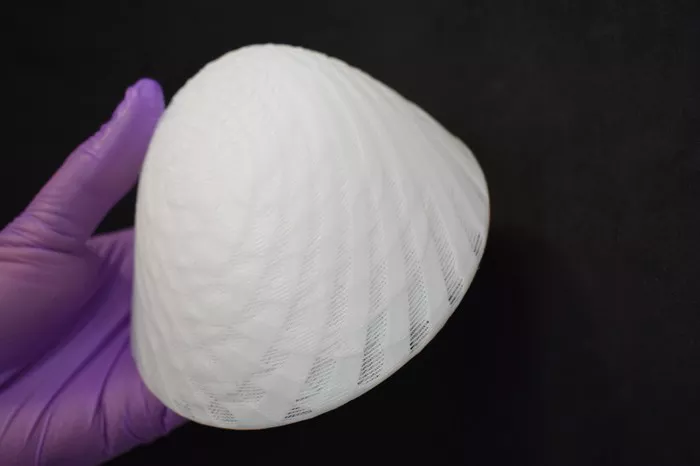Bioprinting company BellaSeno has released an encouraging update regarding its ongoing clinical trial focused on resorbable breast scaffolding. This innovative trial utilizes patients’ own fat combined with a 3D-printed scaffold that gradually reabsorbs over a three-year period, aiming to achieve a fully natural breast reconstruction without leaving behind any foreign materials. This approach presents a compelling alternative to traditional breast implants, which introduce permanent foreign objects into the body.
The potential impact of BellaSeno’s method extends beyond breast reconstruction, as it could reshape the market for breast augmentation and other reconstructive procedures. Approximately half of women who undergo mastectomies opt for breast reconstruction, yet only about four percent choose breast implants in some regions. BellaSeno’s technique could offer a safer option, promising a more natural look and feel for breasts, whether they are reconstructed after surgery or augmented for cosmetic reasons.
Furthermore, with the FDA recently tightening regulations on implant safety—citing risks such as scarring, non-Hodgkin’s lymphoma, and connective tissue diseases—BellaSeno has the chance to make a significant positive difference in women’s lives. If proven safer and more effective, the company could not only thrive financially but also contribute to the health and well-being of women globally.
In its latest update, BellaSeno described the correction procedures involving polycaprolactone (PCL) scaffolds. These scaffolds are centrally manufactured and then delivered to hospitals for the procedures. While the scaffolds are not fully customized, they are available in specific sizes to accommodate different needs. During a two-hour operation, fat tissue is harvested from the abdomen or thighs via liposuction and then injected into the scaffold.
Currently, a two-year follow-up study is in progress, with BellaSeno planning to unveil more detailed results at the upcoming 93rd Annual Plastic Surgery Meeting. The study, conducted by BellaSeno’s Australian subsidiary, is spearheaded by Professor Owen Ung from the University of Queensland, alongside Dr. Matthew Cheng and Dr. Anand Deva from the Macquarie University Health Sciences Centre. This research focuses on post-breast implant revision patients treated with scaffolds to evaluate quality of life and overall safety.
The study followed 19 patients, with 12 available for a follow-up a year later. While there have been some reports of infections and necrosis, none of the patients experienced complications commonly associated with silicone implants, such as capsular contracture. The study also compared overall breast volume between the scaffold approach and fat grafting alone, using MRIs to assess tissue. Preliminary findings indicate improved results and higher patient satisfaction with the scaffold method.
BellaSeno has been working towards making reconstructive surgery with 3D-printed PCL scaffolds a reality since 2015. However, the implementation of this technology comes with significant challenges, as it requires considerable investment and time before achieving widespread adoption. Despite these hurdles, BellaSeno possesses substantial disruptive potential in the field. If the positive results continue, the company could revolutionize the breast implant market, leading to higher satisfaction levels among women who have undergone transformative procedures like mastectomies.
With an estimated market value of around $3 billion, the breast implant industry stands to be significantly impacted if BellaSeno’s procedures prove to be safer, more natural, and less stigmatizing than traditional implants. This could resonate with a broader range of women seeking cosmetic or reconstructive options. Additionally, the methodology developed by BellaSeno could potentially be applied to augment or reconstruct other areas of the body, paving the way for further advancements in reconstructive surgery. The implications of BellaSeno’s work are not only innovative but also carry the potential for transformative change in the medical field.
You Might Be Interested In:
Aesthetics Centre Celebrates Namibia’s First Hair Transplant Milestone

